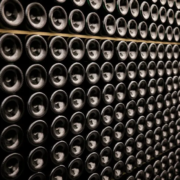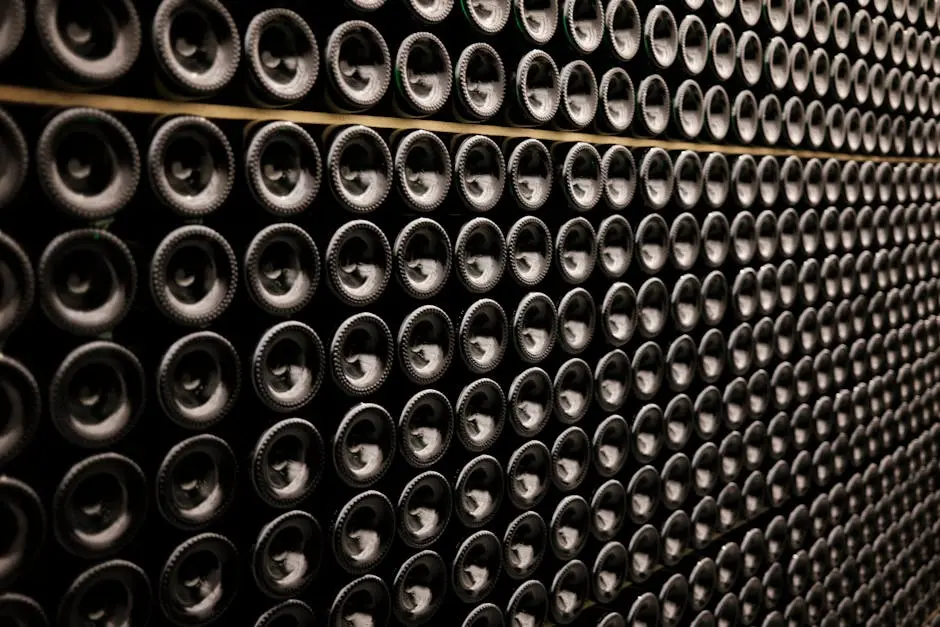The Art of Aging: How a Wine Storage Facility Protects Your Collection
A wine collection is more than just a collection of bottles; it’s an investment and a labor of love. Properly aging wine requires a specific environment, and that’s where wine storage facilities come into play. In this blog, we will explore the importance of these facilities in preserving and enhancing the value of your wine collection.
Understanding Wine Aging
Wine aging is a delicate process influenced by various factors such as temperature, humidity, and light exposure. Understanding these factors helps collectors appreciate why proper storage is essential. For instance, a consistent temperature of around 55°F is ideal for most wines, as fluctuating temperatures can cause the wine to expand and contract, potentially leading to spoilage.
Humidity plays a critical role as well. The ideal humidity level for wine storage is about 70%. If the air is too dry, the cork can dry out and allow air into the bottle, which can ruin the wine. Conversely, excessive humidity can lead to mold growth on the cork, which can also affect the wine. These factors underscore the necessity for professional wine management.
Light is yet another piece of the puzzle. Ultraviolet (UV) light can degrade wine, impacting its flavor and character. Dark storage spaces shield your precious bottles from these harmful rays, making it clear why understanding the nuances of wine aging is critical for any collector.
The Role of a Wine Storage Facility
Wine storage facilities provide climate-controlled environments designed specifically for storing wine. This section will explore how these facilities create optimal conditions for aging. Unlike a typical home setup, these facilities maintain a steady environment to protect your collection.
For wine enthusiasts, using a wine storage facility means having access to specialized equipment that ensures the right climate is maintained at all times. This includes advanced cooling systems that keep temperatures at a consistent level, preventing the negative impacts of fluctuations.
Additionally, many facilities incorporate humidity controls, which are essential for maintaining the integrity of the wine corks. This feature greatly reduces the risk of oxidation, preserving your wines for years to come. With these tailored environments, a professional storage service truly acts as a guardian for your collection.
Key Features of a Quality Wine Storage Facility
Not all wine storage facilities are created equal. Here are the essential features to look for, including temperature control, humidity regulation, and security measures. Temperature control, as we previously discussed, is base-level importance, but true quality comes from consistent monitoring.
Humidity regulation is another crucial element. Beyond just maintaining a percentage, quality facilities will often have systems in place to adjust humidity based on external weather conditions, shielding your wine from any abrupt environmental changes.
Security measures cannot be overlooked either. A top-notch facility will offer secure access and surveillance features that ensure your collection is safeguarded against theft or damage. Additional services like inventory management can further enhance your storage experience, allowing you to easily track your collection over time.
Preventing Common Wine Storage Mistakes
Many collectors make critical mistakes when storing their wine, which can lead to spoilage or loss of value. This section will highlight common pitfalls and how to avoid them. One major mistake is storing wine in areas with direct sunlight, such as kitchen cabinets or near windows. The heat and light can degrade the quality of the wine significantly.
Another frequent error is neglecting to store wine bottles horizontally. This is particularly vital for bottles with corks, as it keeps the cork moist and prevents it from drying out. A dry cork can lead to oxidation, ruining the wine and negating years of careful collection efforts.
Underestimating the value of proper ventilation is also a mistake that many collectors make. A well-ventilated storage environment helps to prevent the growth of mold and preserves the freshness of the air around your collection. Ensuring these factors are managed can make a world of difference in the quality of wine you enjoy.
The Benefits of Professional Wine Storage Services
Using a professional wine storage facility offers many advantages over home storage. From insurance benefits to expert advice, this section will discuss why you should consider these services. One significant advantage is the peace of mind that comes with knowing your wine is stored in a controlled environment monitored by wine storage professionals.
Moreover, professional facilities often offer insurance options that provide further protection for your collection. If something were to happen—such as a natural disaster or unforeseen incident—having insurance can save you from devastating loss.
Lastly, professional wine storage facilities frequently provide access to personnel who have in-depth knowledge about wine. Their expertise can be invaluable, offering taste recommendations and helping you plan for your collection’s future. With these benefits, it’s easy to see why many collectors choose to store their wine in such facilities.
Protect Your Investment with the Right Wine Storage Facility
Investing in a wine storage facility is a crucial step for any wine enthusiast looking to protect their collection. The right facility not only preserves the integrity of your wines but also provides peace of mind for your investment. By understanding the benefits and features of a quality wine storage facility, you can ensure your collection ages beautifully.



